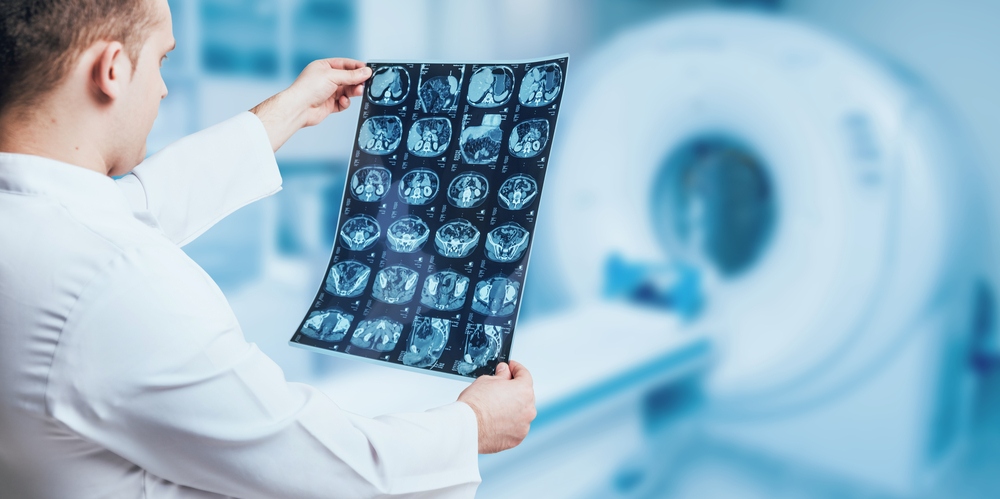Nvidia and King's College London will train AI tech to help tackle cancer
The two organisations will work to build machine learning algorithms to spot underlying cancer causes in radiology scans


Nvidia has announced a partnership with King's College to build an AI platform that will allow NHS specialists to train computers to automate radiology workflows.
KCL will use Nvidia's DGX-2TM system, which has the potential to classify stroke and neurological impairments, to determine the underlying causes of cancers, as well as recommend the best treatment for patients.
The university will also use Nvidia's Clara AI toolkit with their own imaging technologies, such as NiftyNet, as well as those from partners including Kheiron Medical, Mirada and Scan Computers.
It's the first time in the NHS that federated learning will be applied to algorithm development, which is a concept in machine learning that allows AI algorithms to be developed collaboratively, without needing to share training data. It means algorithms can be developed on site using data from each individual hospital, without the need for data to travel outside of its own domain.
Currently, the security and governance of data is a hot topic, but according to King's, federated learning is crucial for the development and implementation of AI in clinical environments. Potentially, it can be used to develop AI models in different NHS Trusts across the UK, built on data from different patient demographics and clinical attributes.
The reason they want to develop the models at individual NHS trusts is so that the data will give a more accurate and representative insight into patients from that particular area. The NHS will also be able to combine these trust specific models to build a larger and demographically richer overall model.
"This centre marks a significant chapter in the future of AI-enabled NHS hospitals, and the infrastructure is an essential part of building new AI tools which will benefit patients and the healthcare system as a whole," said professor Sebastien Ourselin, head of the school of biomedical engineering and imaging science at KCL.
Get the ITPro daily newsletter
Sign up today and you will receive a free copy of our Future Focus 2025 report - the leading guidance on AI, cybersecurity and other IT challenges as per 700+ senior executives
"The Nvidia DGX-2 AI system's large memory and massive computing power make it possible for us to tackle training of large, 3D datasets in minutes instead of days while keeping the data secure on the premises of the hospital."
Researchers and engineers from King's and Nvidia will work together with clinicians on-site at King's College Hospital, Guy's and St Thomas, and South London and Maudsley. The combination of research, technology and clinicians will streamline the discovery of critical data strategies, targeted AI problems and fast-track deployment in clinics.
It's part of King's ongoing London Medical Imaging and AI Centre for Value-Based Healthcare project which aims to disrupt twelve clinical pathways in oncology, cardiology, and neurology, as well as improve diagnoses and patient care in the NHS.
Bobby Hellard is ITPro's Reviews Editor and has worked on CloudPro and ChannelPro since 2018. In his time at ITPro, Bobby has covered stories for all the major technology companies, such as Apple, Microsoft, Amazon and Facebook, and regularly attends industry-leading events such as AWS Re:Invent and Google Cloud Next.
Bobby mainly covers hardware reviews, but you will also recognize him as the face of many of our video reviews of laptops and smartphones.
-
 Cleo attack victim list grows as Hertz confirms customer data stolen
Cleo attack victim list grows as Hertz confirms customer data stolenNews Hertz has confirmed it suffered a data breach as a result of the Cleo zero-day vulnerability in late 2024, with the car rental giant warning that customer data was stolen.
By Ross Kelly
-
 Lateral moves in tech: Why leaders should support employee mobility
Lateral moves in tech: Why leaders should support employee mobilityIn-depth Encouraging staff to switch roles can have long-term benefits for skills in the tech sector
By Keri Allan